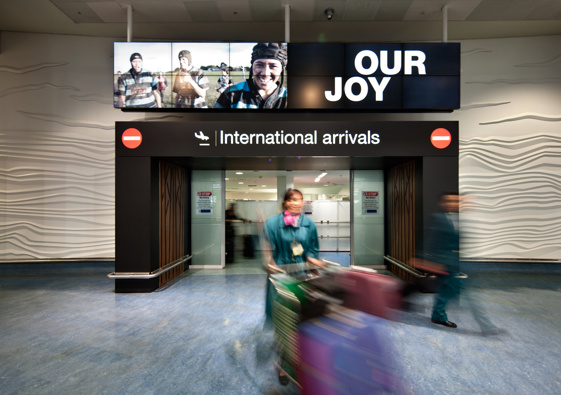First up, the changes to immigration.
Guess what? High-trust models don't work when it comes to work visas. A stunning revelation to start the week. Credit where it's due, Radio New Zealand have been on to the story. They applied for information around the new immigration visas under the Official Information Act and found out that even after Immigration New Zealand was told of concerns over lax checks and migrants buying jobs for up to $50K on the open market, it took Immigration New Zealand three months to take any kind of action. Some workers were arriving into New Zealand expecting to find the streets paved with gold. Instead, they found they had no job. Meanwhile, dodgy agents and immigration consultancies were making a fortune, millions is estimated, from selling accredited employer work visas to people who didn't have the skills, didn't have any English, didn't have a clue, just knew that they wanted out of where they were at and into New Zealand - and in they came. Our net migrations soared. The annual net migration gain in 2023 was about the size of Taranaki. An entire province. It was made-up of a net gain of 173,000 non-New Zealand citizens, and a net loss of 47,000 New Zealand citizens in 2023. Now, some of these new New Zealanders will bring skills and a positive attitude that New Zealand sorely needs. They've always done so. You know from the very first settlers all the way through. People who make the shift to a new country bring with them an attitude and a determination to succeed. But many of these new migrants have arrived with no English, minimal skills, and they will struggle. Minister of Immigration Erica Stanford says the changes to immigration visas are necessary because the high trust model wasn't working. (Which any fool could have told you I'd imagine.) And it brings New Zealand into line with the immigration policies of other countries. She told Mike Hosking she doesn't believe the government is acting too soon in restricting immigration, and it's not acting for the wrong reasons.
“We've taken a really close look at this and I think the reasonable responsible thing to do is to recalibrate our immigration settings to meet what the market is doing. We saw last year an extra 20,000 people went on the job seeker benefit while we brought in 52,000 very low skilled migrants. Now those numbers just don't add up and if you look at the work Louise Upson's doing in making sure that there are benefit sanctions for people to ensure that they are looking for work. It's my responsibility as Immigration Minister to make sure that that work is available for Kiwis first and foremost.”
Well, absolutely. That was Erica Stanford on with Mike Hosking on the Mike Hosking Breakfast this morning. He did make the point that Labour tried shutting the borders during Covid and relying on New Zealand labour to fill the gaps and that quickly became apparent that simply was not going to happen. Those who could work were working, and then there were those who simply could not or would not work. So, when it comes to the market at the moment - I mean remember the calls from desperate employers who were looking for somebody, anybody to take jobs around the country - can you now pick and choose when it comes to staff? Can you now pick and choose when it comes to people applying for jobs and filling the positions? I'm sure you'll remember the calls. There were people just screaming for anybody, anywhere to come to their particular town or city and do a job. They'd take anybody. Now, do employers have a bit more choice? They have a bit more wiggle room and a bit more leeway? When you put out a situations-vacant, have you got people applying and now you have the luxury of choice? You're not as desperate as you once were. For those who are or have faced redundancy, has it been relatively easy to get into work with the skills you have, or are you finding you're competing with more than you imagined? We need skilled migrants. The whole Western world needs skilled migrants and I can't see that ending any time soon, but the last thing we want is to have people arrive in this country who have no idea where they are, they have no idea how to fit in, they have no prospect of enjoying any kind of life. Steve Braunias wrote a very, very moving insight into what it is like for migrants arriving here with no support, no English, no family. They can get jobs but it's an existence, it's not a life. ‘Life and Death in the Auckland Shadows’ was the title of the piece he wrote for the New Zealand Herald. It's bloody tragic. And we do not want people arriving who are condemned to lives as basically subsistent slaves. That's not what we're about. So, two stories, really, when you arrive in this country, is it easy enough for you to get the job you were promised to, to be able to assimilate, to have the land of milk and honey you were promised? For employers, do you support the changes to the immigration visas? Do you have the luxury of choice now, but more leeway when it comes to employing staff? And for those looking for work, is it easy enough if you have skills to find jobs or are you struggling in the market at the moment?
Take your Radio, Podcasts and Music with you










